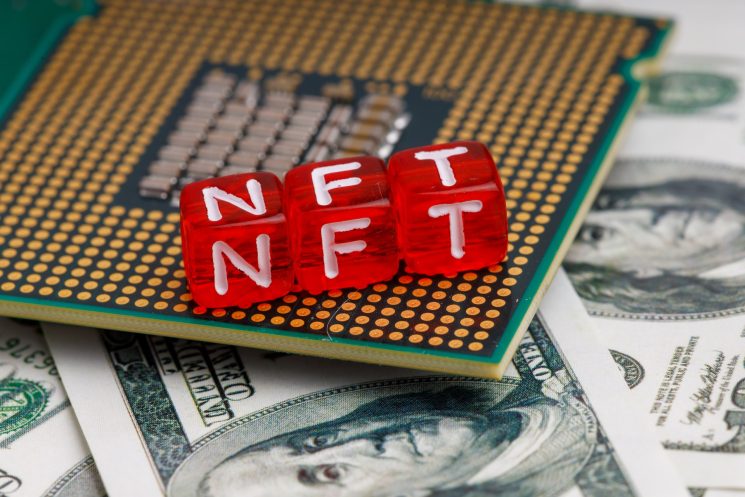Non-fungible tokens or NFTs are a kind of crypto assets that have taken the digital world by storm. These were in existence already. But NFTs became a craze during the pandemic as more and more people started showing an increased eagerness to convert the long hours spent on the internet into value monetarily. Much unlike fungible tokens or cryptocurrencies, like bitcoins, for example, NFTs are non-interchangeable and non-tradable.
Transforming the digital world with NFT as a service
In what way are these cryptographic assets different from cryptocurrencies?
NFTs are units of data that exist on a blockchain and are easily distinguishable from one another by a unique code and metadata. NFTs, help tokenize real-life tangible assets like artwork, video, music, etc allowing one to invest in these digital collectibles with prospects of a high return on investment. These assets can be bought and sold digitally using cryptocurrencies which have further led to the emergence of NFT platform services called online marketplaces.
Online marketplaces
These online marketplaces are very similar to a regular marketplace where one can buy and sell items. But unlike regular marketplaces, these digital platforms are much safer. This is because here the data is stored in the form of blocks on a list or a ledger. These blocks of information are then connected as a permanent chain. As new blocks keep getting added to the chain, modifying the earlier ones becomes harder. And this strengthens the security of the blocks over time.
These online marketplaces have been a ray of hope for artists who were thrown off gear during the pandemic with their sources of income running dry. So by harnessing the NFT world, these artists have been successful in monetizing their artworks. And apart from generating revenue, NFTs also eliminate the role of middlemen and connect artists with their audiences directly. Through NFTs, therefore, artists can now exercise more control over their artworks.
On the other hand, owning crypto art is a mark of status and people love such rewards. Hence, NFTs are being increasingly used by brands and artists as a means of extending loyalty rewards to retain customers.
NFT as a service – NFT rewards program
In a recent example, the musical band, Kings of Leon released their album as an NFT. Furthermore, through the NFT rewards program, they even allowed their fans an opportunity to win rewards in the form of NFT tickets. Loaded with VIP perks, these tickets can be used by the fans for the band’s upcoming concerts to avail of privileges like lifetime front-row seats. Additionally, by offering their fans NFTs with open editions, the band also gave them access to the exclusive artworks that were part of their shows.
For consumer brands, however, NFT rewards are in addition to their already existing loyalty programs through which they have been rewarding the customers for their brand loyalty over the ages. But with time these loyalty programs have lost their sheen. So NFTs could be a great way to revive lost appeals. Because, unlike loyalty programs, NFT rewards are not limited to offering points to the customers. The latter can do so much more with NFTs like using them for different companies, which may result in inter-industrial collaborations in the future.
Some examples of consumer brands using NFT as a service – NFT rewards program
Clinique
Clinique, the American skincare company capitalized on NFTs with a unique scheme. They used an NFT raffle along with their existing loyalty scheme to announce the company’s foray into the NFT world. They allowed participants to enter the NFT raffle only after sharing their interests on Facebook, Instagram, Tik Tok, and so forth. Using social media as a mandate for winning the NFT, the brand generated a huge response. Social media, aside from leading to a high rate of participation, also piqued interest in the overall value of the brand and restored interest in their loyalty program.
Ecommerce brands
Brands believe in the power of customer engagement. Therefore, companies like Starbucks are constantly looking to connect with customers through gamification. The Starbucks Rewards app is a case in point. This app allows customers incentives like free coffee and a chance to avoid long queues if they accomplish daily missions. Gamification is not new to e-commerce. So, implementing NFTs into e-commerce will be the obvious next step.
Gaming
NFTs have exploded in the gaming space too with play-to-earn video games and metaverse becoming popular. The gaming companies are using this rewarding option to establish a stronger connection with the gamers.
Sports world
NFTs are gaining popularity in the world of sports too where athletes offer them to fans as a way of keeping them engaged and reigniting their interests in the game.
Conclusion
Going forward, NFTs should be the focus of any futuristic company because blockchain technology is here to stay. NFTs can help companies build brand value by increasing customer engagement and loyalty. But successful execution of NFT projects requires meticulous planning and a deep analysis of customer behavior and market trends.





